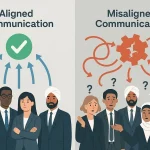Introduction
In today’s competitive job market, finding the right talent or proving you’re the best candidate can be challenging. Traditional hiring methods often fall short, leading to bad hires and missed opportunities. This is where skills testing comes in. A proper skills assessment practically validates your abilities, benefiting employers who want to build strong teams and individuals pursuing new careers or skilled migration. It’s a crucial tool in modern recruitment and a key requirement from bodies like the Department of Home Affairs.
Understanding Skills Testing and Assessment
So, what exactly is skills testing? It is a method used to evaluate a candidate’s abilities through practical tasks and simulations. This approach provides objective proof of competence, moving beyond what a resume claims.
The assessment process is vital for various purposes, from hiring the right person for a job to meeting the strict assessment criteria for skilled migration. For those looking to move to countries like Australia, a formal skills assessment is often a non-negotiable step required by the Department of Home Affairs. Let’s explore this concept in more detail. A career skills quiz typically includes a variety of questions designed to evaluate both technical and soft skills relevant to specific professions or industries. These quizzes often assess competencies such as problem-solving, communication abilities, leadership potential, and job-specific knowledge to help determine a candidate’s suitability for a particular role or migration requirements.
What Is a Skills Assessment?
A skills assessment is a formal evaluation to determine if your skills and qualifications meet the standards required for a particular job. This is especially important for roles on a skilled occupation list. The assessment process is conducted by an official assessment body, which uses specific assessment criteria to verify your expertise. In Australia, you can find official skills testing services through designated assessment authorities such as Trades Recognition Australia, VETASSESS, or the relevant registration boards for your occupation. These organizations are approved to conduct skills assessments for migration or professional purposes.
For immigration purposes, a skills assessment is used to confirm that you have the qualifications and experience needed to work in your nominated occupation in a new country. It provides official proof to immigration authorities that your skills are recognized and at the required level. This is a critical step in many visa applications, as it validates your professional standing.
Ultimately, whether for a job application or a visa, a skills assessment shifts the focus from credentials on paper to your actual ability to perform the work. It’s a practical test of your capabilities, ensuring you’re a good fit for the role and its demands.
Why Skills Testing Matters in Recruitment
Skills testing is revolutionizing the recruitment landscape by making the selection process more reliable and fair. Instead of relying solely on resumes and interviews, employers are using skills assessment tests to get a true measure of a candidate’s abilities and relevant work experience.
These skills tests, often delivered through online platforms or assessment centres, give you a chance to demonstrate your practical talents. This data-driven approach helps companies build stronger, more capable teams. The following sections explain how this method reduces bias and improves hiring accuracy.
Reducing Bias and Improving Objectivity
One of the biggest flaws in traditional hiring is the potential for unconscious bias. A hiring manager might favor a candidate from a certain university or with a particular background, overlooking other qualified applicants. Skills testing helps employers make better hiring decisions by leveling the playing field.
Skills assessment tests help remove these subjective factors from the assessment process. By focusing on performance in job-related tasks, every candidate is evaluated against the same objective assessment criteria. This ensures that decisions are based on merit, not personal preferences or background.
This objectivity helps employers by:
- Focusing on demonstrated ability rather than credentials.
- Using a standardized scoring system for all applicants.
- Minimizing the impact of unconscious preferences.
- Creating a fairer and more transparent hiring experience for everyone.
Enhancing Hiring Accuracy for Employers
Did you know that nearly half of all new hires fail within 18 months? This often happens because resumes can be misleading and interviews don’t always predict on-the-job performance. Skills assessment tests dramatically improve hiring accuracy by showing employers what you can do before they make an offer.
This assessment process gives a realistic preview of your work experience and capabilities. Unlike a resume, where skills can be exaggerated, a test provides concrete evidence of your proficiency. This helps companies avoid costly hiring mistakes and ensures the person they hire has the skills to succeed from day one.
While “skills assessment” is the broad process of evaluating abilities, “skills testing” refers to the specific tools—like simulations or coding challenges—used within that process. These tests are the key to refining the selection process and making confident, accurate hiring decisions.
The Process of Skills Assessment for Job Seekers
If you’re a job seeker, particularly one considering skilled migration, navigating the skills assessment process is a critical step. You must demonstrate that you have the appropriate skill level for your chosen occupation to a designated assessment body.
For those planning to work in Australia, this process is essential for your visa application with the Department of Home Affairs. Choosing the right assessment pathway and meeting all requirements is key to a successful outcome. The following sections will guide you through the typical steps and explain how pre-employment tests work.
Steps for Completing Official Skills Tests
Completing an official skills assessment, especially for working in Australia, involves a structured skills assessment process. While the exact steps vary depending on your occupation and the relevant assessment body, the general assessment pathway is similar.
First, you need to confirm that you meet the basic eligibility requirements for your occupation. This often includes specific qualifications and a certain amount of work experience. Once you’ve confirmed your eligibility, you can begin the formal application. The entire process requires careful attention to detail to meet the strict assessment criteria.
Here are the typical steps involved:
- Identify the correct assessment body: Find the authority designated to assess your specific occupation.
- Check eligibility: Review the specific requirements for qualifications, experience, and English proficiency.
- Gather documents: Collect all necessary paperwork, such as transcripts, employment references, and identification.
- Submit your application: Complete the application form and pay the required fees to the assessment body.
How Pre-Employment Skills Tests Work
Pre-employment skills tests are designed to be a seamless part of the hiring journey. Typically, after you submit your job application, you’ll receive an invitation to complete an online assessment. This test is your chance to showcase your practical skills in a way that a resume cannot.
The assessment process often includes a mix of questions and tasks that simulate the real work you would be doing. For instance, a marketing candidate might be asked to draft a social media post, while a developer might face a coding challenge. These skills assessment tests are designed to be engaging and directly relevant to the job.
Your performance is then scored, often using AI to ensure fairness, and the results are shared with the hiring manager. This information helps them narrow down the selection process to the most qualified candidates, making hiring faster and more effective than traditional methods.
Benefits of Skills Assessment Tests
The benefits of skills assessment tests extend to both employers and candidates. For companies, they are a powerful tool for identifying top talent based on proven ability rather than just work experience listed on a resume. This leads to better hires and stronger teams.
For individuals, a positive skills assessment outcome can be a game-changer. It validates your expertise, boosts your confidence, and can be the key that unlocks new career opportunities or fulfills the requirements for migration purposes. Let’s look at how these tests support professional growth and help build better workforces.
Supporting Career Progression and Migration
For anyone looking to advance their career or pursue skilled migration, a skills assessment is an invaluable asset. It provides official validation of your skills, which can help you stand out to employers and command a higher salary. It’s a clear signal that you are an expert in your field.
When it comes to migration, a migration skills assessment is often a mandatory requirement. Obtaining a positive result is a critical milestone in your visa application process. Many people seek migration advice from a registered migration agent to navigate the complexities and ensure all requirements are met.
These agents can offer skills assessment support, guiding you through the documentation and application to improve your chances of success. Ultimately, the benefit of taking a skills assessment test is that it provides a clear, recognized credential that supports your long-term career and life goals.
Building Stronger Workforces
Companies that use skills-based hiring build more resilient and productive workforces. By using skills assessment tests, employers can ensure that every new hire possesses the practical abilities needed to excel in their role, going beyond surface-level work experience.
This approach ensures that employees are not just qualified on paper but are also a great fit for the actual demands of the job. It reduces the risk of hiring someone who lacks the necessary skills, which in turn lowers employee turnover and increases overall team performance. The employment requirements are met with confidence.
Job seekers will encounter various types of skills assessment tests, including technical tests for specific software, cognitive tests for problem-solving, and job simulations that mimic daily tasks. This variety allows employers to get a well-rounded view of a candidate’s capabilities.
Conclusion
In conclusion, skills testing is an essential component of the recruitment process that benefits both employers and job seekers alike. By implementing effective skills assessments, companies can reduce bias, enhance hiring accuracy, and build stronger teams. For job seekers, these tests provide an opportunity to showcase their abilities and support career progression. Embracing skills testing not only fosters a fairer hiring landscape but also ensures that the right individuals are matched with the right roles. If you’re interested in elevating your recruitment strategy or preparing for your skills assessment, don’t hesitate to reach out for a free consultation. Your path to success starts with the right skills!
Frequently Asked Questions
Are skills assessments required for immigration to Australia?
Yes, for many skilled visa subclasses, a positive skills assessment is mandatory for migration purposes. The Department of Home Affairs requires this as part of the visa requirements to ensure you have the qualifications needed for your nominated occupation in Australia. It’s a key step in the assessment process.
What types of skills tests do employers commonly use?
Employers use a variety of skills assessment tests depending on the role. These include technical skills tests for trade occupations, job simulations for professional occupations, cognitive ability tests, and soft skill evaluations. Many companies use online assessment centres to administer these skills tests efficiently.
How do I prepare for a skills assessment test?
To prepare, first identify the correct assessment body and carefully review their assessment criteria. Understand the assessment pathway and the format of the test. Practice tasks related to your occupation and gather all necessary documents for the application process to ensure your skills assessment goes smoothly.






